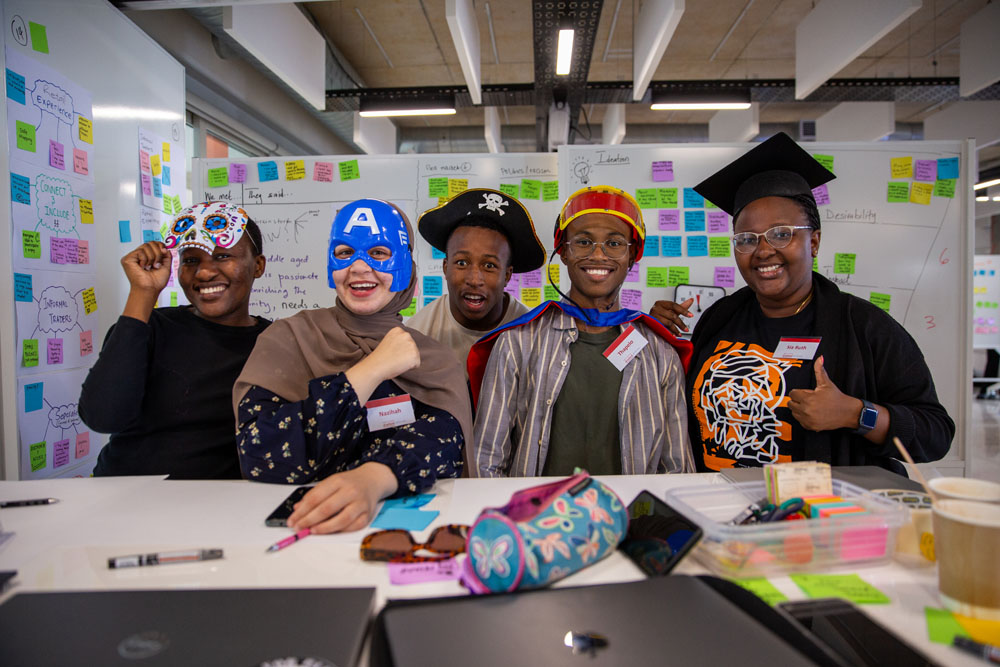In a world marked by rapid change and complexity, Africa stands at a pivotal crossroads, facing a myriad of challenges ranging from socio-economic disparities to environmental sustainability. To effectively address these pressing issues and pave the way for a brighter future, it’s imperative to adopt innovative problem-solving approaches.
According to Paul Steenkamp, founder of business strategy consultancy I am Jack Frost, the local and global context is evolving towards more inclusive and sustainable problem-solving approaches in business.
“This shift,” he says, “encourages businesses and leaders to adopt strategies that prioritise empathy, collaboration, and innovation, focusing on creating value for a wider range of stakeholders, including communities and the environment.”
This transition reflects a deeper understanding of the interconnectedness of global challenges and the role of businesses operating collaboratively at an ecosystem-level in contributing to solutions.
Human- and Afro-centricity significantly influence innovation for growth by ensuring that solutions are culturally relevant and address the specific needs of African markets and communities.
Design Thinking for Afrika, by Afrika
Design thinking, at its core, is a mindset and methodology that places human needs and experiences at the forefront of problem-solving. It emphasises empathy, collaboration, and iterative prototyping, making it particularly well-suited for addressing the diverse and multifaceted challenges prevalent across the African continent.
It further fosters broader engagement, the harnessing of indigenous knowledge, best practices, and diverse insights, alongside mutually rewarding partnerships that fuel and deliver effective problem-solving.
The Design Thinking in Afrika programme exemplifies this ethos, providing a platform for participants to engage in a competitive Trans-African Challenge. Through this challenge, participants not only develop critical thinking skills but also gain exposure to real-world problems facing African communities.
“The Design Thinking in Afrika programme,” says Tiego Monareng, Programme Lead at the d-school Afrika at UCT, “carefully selects and collaborates with project partners who present our participants with real-world challenges, which need to be addressed in creative new ways. These real-world challenges are framed as a design challenge for participants to respond to during the program, as they develop their creative confidence and problem solving capacity through the design thinking process.”
In addition to fostering critical thinking, the programme emphasises the importance of diverse collaboration. By working within multidisciplinary teams and partnering with key industry players, participants gain valuable insights and expertise, ensuring that the solutions they develop are not only innovative but also practical and sustainable.
Furthermore, the programme embodies the principles of human-centred design, ensuring that solutions are developed with the end-users in mind. This approach not only increases the likelihood of success but also fosters a deeper understanding of the unique challenges and opportunities present in African markets and communities.
As Africa continues to navigate the complexities of the 21st century, design thinking offers a powerful framework for addressing the continent’s most pressing challenges. By prioritising empathy, collaboration, and innovation, design thinking empowers individuals and communities to create a future that is inclusive, sustainable, and prosperous for all.
“This programme,” says Hoda Mostafa, Director of the Center for Learning and Teaching at the American University in Cairo, “is an example of a collaborative initiative that bridges the geographical divide between African universities who care deeply about empowering students to solve real world complex challenges in multidisciplinary teams.”
Hoda continues, “Not only must we expose students to opportunities to think about today’s complex challenges, we must also equip them with mindsets and tools to address the uncertainties of the future. By bringing human-centred, challenge-based learning into the heart of the learning process, we engage students in a unique experience that introduces the mindsets and process of design thinking in a collaborative environment that is specific to learners on the continent and our challenges.”
The Design Thinking in Afrika programme is more than just a learning opportunity – it’s a catalyst for change. By embracing the principles of human-centred design, participants are not only equipped with the skills and mindset needed to tackle Africa’s challenges but also empowered to shape a brighter future for the continent and beyond.
To find out more about the d-school Afrika’s Design Thinking in Afrika programme visit the programme page.








